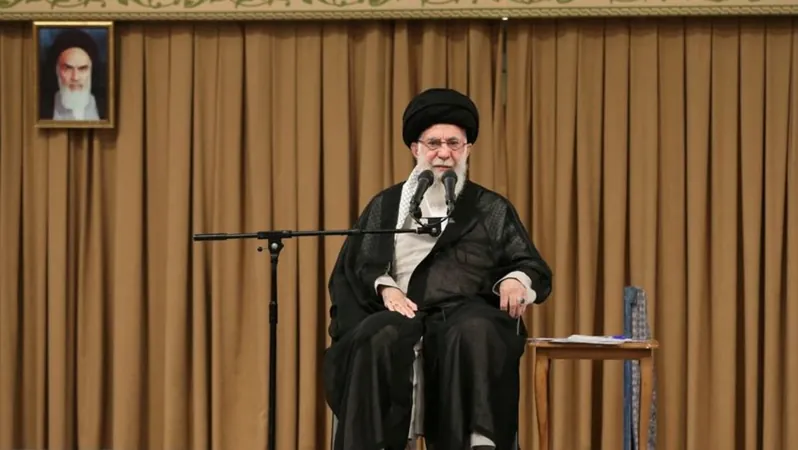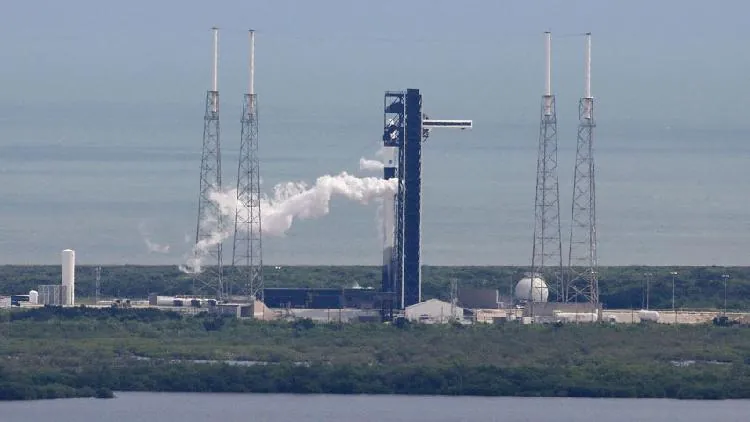
Iran Threatens Devastating Retaliation Against Israel Amid Growing Tensions
2024-10-01
TEHRAN: Iran's Revolutionary Guards Threaten Retaliation
In a stark warning that heightens already soaring regional tensions, Iran's Revolutionary Guards have proclaimed they will unleash "crushing attacks" on Israel should the nation retaliate against the recent missile strikes launched from Iranian territory.
In a statement reported by the Fars news agency, the Islamic Revolutionary Guard Corps (IRGC) asserted, "If the Zionist regime reacts to Iranian operations, it will face crushing attacks." This declaration marks a significant escalation in the ongoing conflict between the two longstanding adversaries.
Missile Barrage Justified
The IRGC justified its missile barrage, claiming it was executed "in accordance with the United Nations Charter" and came after a prolonged period of restraint in response to what it described as an "attack on the sovereignty" of Iran. This refers specifically to the assassination of Hamas leader Ismail Haniyeh in Tehran back in July, which has been a source of outrage in Iran.
Recent Missile Attack on Israel
On the same day as their warning, Iranian forces reportedly launched a substantial missile attack targeting key areas in Israel, including its bustling commercial capital, Tel Aviv. Iranian state media showcased dramatic footage of the missile launches, accompanied by patriotic fervor in their broadcasts, emphasizing the resilience and bravery of the Iranian people.
Escalating Conflict
This recent missile strike constitutes Iran's second significant assault on Israel in the last six months, recalling an earlier strike involving missiles and drones launched in April as retaliation for an Israeli airstrike that struck Iran's consulate in Damascus. Most projectiles from that attack were intercepted effectively by Israeli defense systems.
Death of Hezbollah Leader
The recent escalation comes on the heels of an Israeli airstrike in Beirut that resulted in the death of Hezbollah leader Hassan Nasrallah. This Lebanese militant group has been a longstanding ally of Iran and has received substantial military and financial support from Tehran. The death of General Abbas Nilforoushan, a high-ranking commander of Iran's Quds Force, in the same attack has further inflamed Iran's resolve to retaliate.
Iran's Stance at the UN
In a statement at last month's UN General Assembly, Iranian President Masoud Pezeshkian accused Israel of warmongering, asserting that Iran had exercised restraint in the wake of Haniyeh's killing, motivated by the hope for a ceasefire in the ongoing Gaza conflict. However, Pezeshkian claimed that promises of a ceasefire were allegedly a ploy, asserting, "Giving these criminals (Israel) a chance would only encourage them to commit more crimes."
Conclusion: A Pivotal Moment in Geopolitics
As tensions continue to rise in the region, fueled by the ongoing Gaza war, Iran has stood firmly against Israel, consistently proclaiming its support for the Palestinian cause since the Islamic Revolution in 1979. Tehran celebrated Hamas's attack on Israel on October 7, which escalated the war in Gaza, but has denied any direct involvement.
With the U.S. warning that a retaliatory missile attack from Iran would incur "severe" consequences, the international community watches with bated breath as this volatile standoff unfolds. Will Iran act on its threats, or is there room for diplomatic resolution? The world is poised for what could be a pivotal moment in Middle Eastern geopolitics.




 Brasil (PT)
Brasil (PT)
 Canada (EN)
Canada (EN)
 Chile (ES)
Chile (ES)
 España (ES)
España (ES)
 France (FR)
France (FR)
 Hong Kong (EN)
Hong Kong (EN)
 Italia (IT)
Italia (IT)
 日本 (JA)
日本 (JA)
 Magyarország (HU)
Magyarország (HU)
 Norge (NO)
Norge (NO)
 Polska (PL)
Polska (PL)
 Schweiz (DE)
Schweiz (DE)
 Singapore (EN)
Singapore (EN)
 Sverige (SV)
Sverige (SV)
 Suomi (FI)
Suomi (FI)
 Türkiye (TR)
Türkiye (TR)